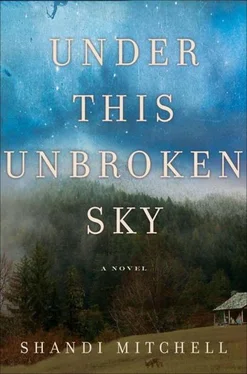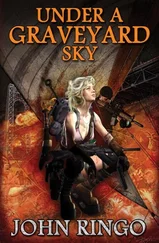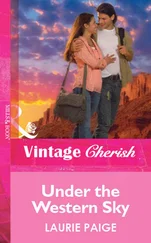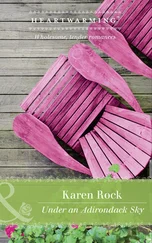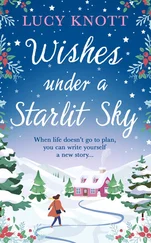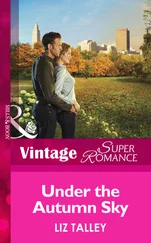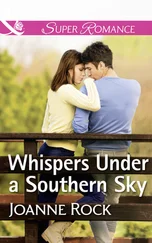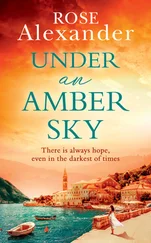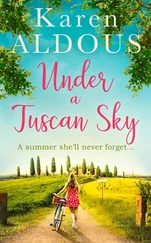ONE WEEK LATER, TEODOR BREAKS THE LAST ACRE. HE and Myron plow the last twenty feet by the waning moon’s light. Walking home, they follow the dim beacon of the kerosene lamp Maria hung outside the shed, the only star anchored to land. After giving the horse extra hay, Teodor enters the shack, pulls off his muddy boots, and announces that soon it will be time to sow.
THE NEXT DAY, AFTER CHURCH, MARIA ASKS TO SEE THE field. She and Teodor head out alone, leaving Dania in charge. Maria still wears her black skirt and crisp white shirt from the service. Her hair is braided and coiled in a bun. She holds the skirt hem up to keep it from dragging in the mud and catching on nettles. Teodor guides her around marsh holes and puddles and takes her hand to help her over the stones.
Maria tells him the news from town and Teodor listens. Occasionally, she stops and pulls a long blade of sweet grass to chew on. They wander slowly, stealing glances at each other, reacquainting themselves with the oddness of being alone together. The sun is low by the time they reach the fieldstone wall marking the start of their property. Teodor helps Maria over the wall. She lifts her eyes across the tilled ground.
Long black furrows stretch ahead of them, not straight and rigid but rolling and soft. Maria takes Teodor’s hand. They walk through the rows, a furrow between them. They walk from one end to the other. Teodor points out where the biggest stumps and rocks had been, where the horse had thrown a shoe, and where the pickax had shattered. When they reach the end of the furrow, they turn: Teodor from habit and Maria wanting to see again. The sun casts their shadows across the waiting ground. Maria asks to see the house. Teodor says it isn’t ready. She asks again.
They walk the remaining half-mile not speaking. Maria keeps her eyes fixed on the building perched atop the hill, afraid that if she blinks it might disappear. They climb the path worn by the cart’s wheels up to the front of the house. When they are a few feet away, Teodor stops and lets Maria continue alone.
The house is long and low. The logs, stripped of bark, seep sap from their wounds. The six-foot walls are complete, the sides interlocked with notches. Soon the roof will be going on. A large hole for a window is set next to the door’s opening. Maria reaches the door and runs her hand along the frame over the hand-hewn timber. She notices the slashes in the wood, where it has been planed and carved into shape. Each mark, her husband’s mark.
She steps inside a massive room tented by blue sky. On the back wall, the golden sun blazes against the wood. Her backlit shadow, framed by the door, looks back at her. A rectangle of light floats beside it. She turns and looks out the window’s opening. Wild grass speckled with milkweed, clover, and starflowers unfolds from the threshold of the house to the black, rectangular swatch of freshly turned earth. The horizon blushes pink and orange.
Teodor watches Maria burnished in the light. She looks at him, her eyes shining. Her hair has come loose. He brushes it from her eyes. It is the first time he has touched her since his return.
Maria leans against the wall between the door and the window and lifts her skirt.
TEODOR WAKES TO A CHICKADEE’S SONG. HE SEES A robin facing south, choking back a big, fat worm. When he puts on his boots, he hesitates and empties them first, and a June bug falls onto the floor. All signs of luck indicating that today is a good day to plant.
The ground has absorbed the early summer rains, the sun has dried the puddles, and the earth is warm and swollen. The clouds are towering puffs with white bottoms. The birch leaves have flipped, showing their silvery-green underbellies to the sky, promising a soft rain in the next few days. A slight breeze blows from the south. The full moon has passed and the new moon is rising.
Teodor never plants under a full moon. He has heard the stories of seeds failing to germinate and seedlings shriveling. The same stories caution against breeding livestock or birthing under a full moon or run the risk of lame colts, two-headed calves, and stillbirths. Something in the moon’s light causes monstrosities caught between life and death to be born. But today everything is perfect.
Teodor is surprised by his good fortune of late. First, Josyp Petrenko, who holds the quarter-section northwest of theirs, loaned Teodor his disc harrow and horses to help smooth the field, in appreciation for Teodor repairing a broken wagon axle and saving his family the shame of being late for church. Josyp’s a respected man. He’s paid off his homestead. He owns two horses, two oxen, three cows, a bull, and has just built a new barn. Now he is Teodor’s friend.
And Maria managed to thresh and winnow almost three bushels of wheat from the confiscated stalks. Enough seed to bring in a good harvest so he can pay off his debts, provide for his family, maybe get ahead a little, and even repay Josyp Petrenko’s generosity. They are planting three weeks late, but if the weather holds, if it is dry but not too dry, and the heat of summer spills into fall, there will be enough time.
The two families stand at the edge of the broken ground, even Anna has joined them for this occasion. Silhouetted against the sky, they look like a child’s paper cutout stretched across the horizon, each person six rows apart. Strapped across their shoulders are bulging sacks cradled in their arms. The children tilt slightly backward, balancing the weight. They are watching Teodor.
It has been light for an hour. When they arrived, they lined up at the cart and Teodor dispensed the seed, adjusting the quantity to each child’s size and weight. Ivan and Petro eyed each other’s bags to make sure the amounts were the same. Anna insisted on carrying far more seed than Teodor thought she could handle. When she started swaying from the weight, he refused to give her any more. Her face red from the exertion, she carried the bundle high on her belly. Teodor filled his pouch last and brushed the remaining seeds from the cart floor, careful not to lose a single kernel.
He stands at the edge of the field, running his fingers through the loose seed, feeling its dryness slip through his fingers. The furrows glisten with the morning dew. The horse grazes, gently tearing at the tall grass on the other side of the stone wall. Its tail contentedly swishes back and forth.
“Ask,” insists Maria. Teodor hesitates, but even he is unwilling to take such a risk. He asks. He asks for help from the sun, the souls of the ancestors, the spirits in the fields and the woods to help make a good harvest; protect them from lightning, storms, waters, fires, and grasshoppers; and bless them with the sacred bread. The families cross themselves. Teodor reluctantly makes the sign. He does this for Maria.
Teodor fills his hand, takes a step forward, and strews the seed side to side in sweeping graceful arches. Like a priest, he anoints the ground: Accept me, accept me .
The family steps forward as one advancing line, scattering their offering in a silent, holy procession. The seeds catch the sun as they spin through the air, falling to life.
JULY BRINGS THE FIRST VEGETABLE HARVEST. YOUNG green fruit, bitter and hard, nestles against swollen ripe vegetables that if not picked soon will fall and rot on the ground. Every morning the children free the overburdened plants from their offspring. They twist off the stems of beans, pickling cucumbers, and early tomatoes and toss them into overflowing buckets. They cut back lettuce, thin carrots, pull onion bunches, strip the vines of peas… only to discover the next morning the garden has birthed again.
They eat from the vine—shelling sun-warmed peas, one for the pail and one for their mouth, and no one tells them they can’t. The first day, they gorged themselves so much, they had diarrhea and bellyaches for three days. The novelty of fresh food has worn off. They chew absently on celery and rhubarb stalks, not because they’re hungry but because they can. They have settled into the daily chore of harvesting.
Читать дальше
